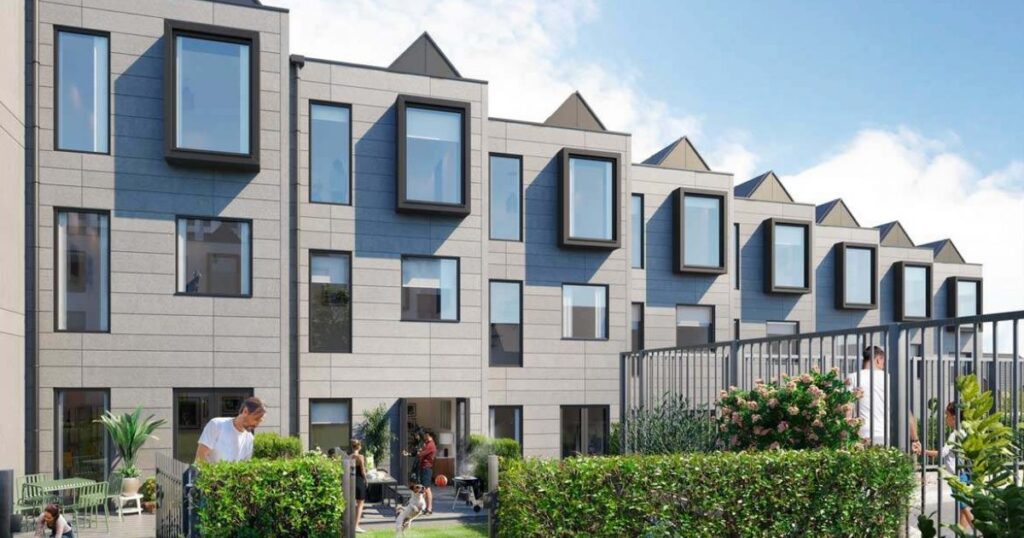
Energy-Saving Tips for Modular Homeowners for Sustainable Living
As modular homes become increasingly popular, especially among home enthusiasts seeking innovation and sustainability, understanding how to maximize energy efficiency is crucial for both economic and environmental reasons. Modular homeowners have unique opportunities to implement energy-saving strategies that are both cost-effective and impactful. In this guide, we will explore energy-saving tips for modular homeowners, so you can enjoy a sustainable living environment.
A modular home is a prefabricated structure that optimizes cost, construction time, and materials usage, making it an attractive choice for eco-conscious individuals. While these homes are built with efficiency in mind, further opportunities exist to enhance energy savings.

Understanding Your Modular Home’s Energy Needs
The Basics of Modular Home Construction
Modular homes are constructed in sections, or modules, that are manufactured in a factory setting. Each module is designed to fit together seamlessly, creating a well-insulated and sturdy dwelling. For a deeper understanding of modular home construction, you may refer to this comprehensive guide.
Importance of Insulation
Insulation is a critical component of energy efficiency in modular homes. Properly insulated walls, floors, and ceilings help maintain consistent indoor temperatures, reducing the need for constant heating or cooling. High-quality insulation can significantly decrease energy consumption.
Techniques to Enhance Energy Efficiency
Smart HVAC Systems
Upgrading to a smart HVAC system can lead to substantial energy savings. These systems adapt to your home’s conditions and can be controlled remotely for optimal efficiency.
Energy-efficient Windows and Doors
Investing in energy-efficient windows and doors is another way modular homeowners can save energy. These products are designed to prevent heat loss and reduce energy exchange, which can lower heating and cooling costs.
Maximizing Natural Light
Designing a home to maximize natural light can reduce the need for artificial lighting during the day. This not only decreases electricity usage but also creates a welcoming living environment. Consider consulting resources on interior design tips specifically for modular homes.
Smart Technology for Energy Efficiency
LED Lighting Fixtures
Replace traditional incandescent bulbs with LED lighting, which uses a fraction of the energy and lasts much longer. LEDs are a simple yet effective way to cut down on energy costs.
Smart Plugs and Power Strips
Smart plugs and power strips can help eliminate ‘vampire energy’ usage, where electronics consume power even when turned off. Implementing these devices is a quick and cost-effective energy-saving measure.
Renewable Energy Options
Solar Panels
Installing solar panels on your modular home is a significant but rewarding investment. By harnessing the sun’s power, you can reduce or even eliminate your dependence on the traditional electricity grid, providing both environmental benefits and financial savings.
Wind Turbines
Although less common than solar panels, small-scale wind turbines are another option to consider, especially in rural areas with consistent wind patterns. These turbines provide a renewable source of energy, contributing to energy savings and sustainability.
Frequently Asked Questions
1. What is the best type of insulation for modular homes?
The best type of insulation for a modular home depends on the local climate and the specific needs of the structure. Common options include fiberglass, spray foam, and cellulose.
2. How can I further reduce my modular home’s energy consumption?
Beyond the tips already covered, consider regular maintenance of HVAC systems, using energy-efficient appliances, and conducting energy audits to identify additional savings opportunities.
3. Are energy-saving upgrades worth the investment?
Yes, while some energy-saving upgrades require an initial investment, the long-term savings on utility bills, combined with potential incentives or rebates, often make them worthwhile.

Conclusion
For modular homeowners, implementing energy-saving strategies is a vital step towards reducing environmental impact and cutting down on costs. By focusing on insulation, utilizing smart technology, and considering renewable energy sources, you can enhance the efficiency and sustainability of your modular home. For further guidance, consider visiting this resource on modular home insurance, which may provide additional ideas for enhancing sustainability and protecting your investment.
Explore Our Resources for More Insights
Dive into our comprehensive resources like preparing your land and choosing a modular home builder, available at The Good Home website, to continue your journey towards a more sustainable and energy-efficient living environment.
This article contains affiliate links. We may earn a commission at no extra cost to you.